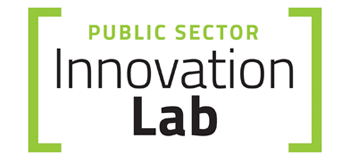
The challenge statement
To assess and redesign the processes of referral to discharge in the Flinders Medical Centre Paediatric Outpatient Department to ultimately better meet the needs of patients and their families.
The situation
The Paediatric Outpatient Unit at Flinders Medical Centre currently receives 50 to 100 referrals per week, who need to be seen in addition to current patients. The growing number of referrals has seen waiting times for patients increase year-on-year. The types of referrals being received by the unit are also changing, with an increase in the number of referrals for behavioural issues. There is a growing challenge to meet the demand created by new referrals in addition to managing existing patients, especially within a constrained physical space.
This growing pressure on clinics means that the current processes and practices would make it difficult to meet the needs of patients in the future.
Finding the time to examine and improve processes in a busy, multi-disciplinary clinical setting is a challenge. It requires individual and collective effort, often above and beyond that directed to patient care and support. As a result, pain-points tend to compound over time, leading to frustration and the embedding of inefficiencies.
Recognising this, a Senior Clinical Psychologist linked to the department, in conjunction with the Head of the Unit, approached the Innovation Lab for assistance. The team sought to understand what the existing processes are and why they exist in order to challenge the status quo as the basis for redesigning processes so referrals can be managed more effectively and efficiently.
The aim is to provide improved services and outcomes for the patients and their families while making better use of existing heath care resources.
Organisations involved (to date)
- Southern Adelaide Local Health Network staff
- Consultants, nurses and administrative staff within the Flinders Medical Centre Paediatric Outpatient Department
- Allied health professionals
- GPs
- Patient representatives.
The approach
- Explore + Apply
- Process mapping
- Lean tools
The project engaged staff across the paediatric department, stakeholders within Flinders Medical Centre and GPs to build a process map of the end-to-end processes from referral to discharge for a patient within the department.
This was complemented by a record of issues and points of interest raised during the engagement process to build a view of the potential areas of focus from a range of perspectives.
Together, these information sources gathered by the Lab provided a view of the current state that had not been available previously, and vast insights into those areas of the process that those involved in the process believe are least effective.
This evidence-base was used as the foundation to a workshop the Lab led for over 30 stakeholders. The findings were presented to the group and discussed. This allowed for challenge, a further level of insight, and a greater range of perspectives to be considered.
The outputs from the workshop were used to create a roadmap of work for the coming months.
Next steps
A series of ‘quick win’ issues that were identified though this work, which the paediatric unit can address internally, are currently being pursued. These improvement measures will see better day-to-day running and management of the clinic.
In addition to this, two working groups have been established. The first will consider referrals and the triage of referrals. The second will consider management of the clinics themselves and the approach that is taken to discharge.
The working groups are made up of representatives from a range of disciplines across the hospital and being time-bound, are expected to drive action and focus attention.
Alongside these working groups, engagement is continuing between the clinic and GPs to build a stronger relationship and an on-going two-way dialogue to manage areas of concern into the future.
The Innovation Lab is continuing to work with the unit and working groups, helping to establish the conditions for innovation within their workplace and building capability and capacity within their teams.
Insights
Problem solving
- The independent workshop facilitated by the Lab created a neutral environment allowing stakeholders to hear different perspectives – often for the first time. This was valuable in developing a greater and shared understanding of the issues for staff and a holistic approach to solving the problem.
- The work has also highlighted the potential for alternative approaches for patients being seen by medical professionals to better meet their needs and to reduce waiting times.
Capability, mindset and capacity
This project demonstrated significant momentum can be generated with a combination of:
- a desire and commitment to change
- access to simple tools
- a champion or coach to support and drive progress.
System
- Initial phases of this work have highlighted the need for improved relationships and communication between primary and secondary care providers.
- This would support the ability to create a more joined up approach to care, with expectations (for patient and referrer) better understood and managed.

